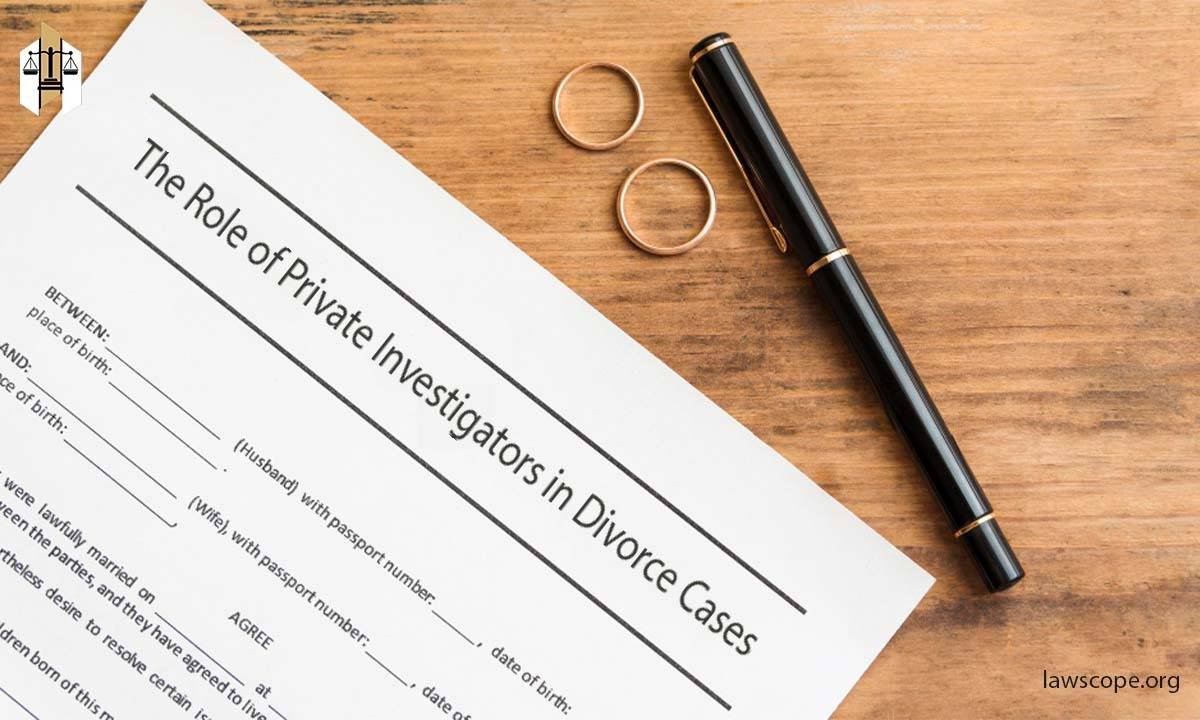Often emotionally charged and complex, divorce proceedings demand that parties navigate sensitive issues: child custody; alimony; and asset division.
In Canada–where federal and provincial statutes govern divorce laws–private investigators hold a pivotal role in unearthing crucial information capable of swaying case outcomes.
The multifaceted role of these detectives within Canadian divorces is the focus of this article: it scrutinizes their legal boundaries, ponders ethical considerations, and assesses how their findings impact legal proceedings.
Understanding The Legal Framework
The federal level in Canada holds the authority over divorce law; specifically, it is governed by the Divorce Act that oversees marital union dissolution throughout the entire country.
However—despite this comprehensive federal oversight—provincial legislation primarily manages issues such as child custody arrangements, support provision, and equitable division of matrimonial property.
Consequently: a variety of differences arise in these matters across our diverse provinces and territories.
Private investigators, within this legal framework, must vigilantly ensure their investigative techniques strictly comply with all relevant federal and provincial laws.
This caution importantly preserves the legal admissibility of potential evidence in a court of law they might present.
The Role of Private Investigators in Divorce Cases
Individuals often enlist the specialized services of private detectives to gather evidence related to crucial matters like unfaithfulness, hidden financial holdings, substance misuse–either drug or alcohol-related-and a variety of other pertinent issues that may sway final decisions in divorce litigations.
These multifaceted investigators employ an array of investigative methods: close observation; comprehensive background scrutiny; and expert forensic accounting – all diligently undertaken with one aim–to unearth critical intelligence.
Potentially fortifying their client’s position or skillfully challenging and countering any opposing accusations: this is the impact that could stem from the information these investigators unearth on behalf of those they serve.
Private detectives: must indeed operate within an ethical framework and rigidly adhere to legal parameters.
This necessity–to ensure the evidence they gather is legitimate, and capable of withstanding legal scrutiny–cannot be understated; it’s imperative.
Navigating Ethical Considerations
Private investigators, hired to unveil truths, must meticulously adhere to ethical standards; their actions should never cross legal boundaries or infringe upon individuals’ privacy rights.
The collection, use, and disclosure of personal information by private sector organizations – including these investigators – in Canada fall under the governance of the Personal Information Protection and Electronic Documents Act (PIPEDA).
This legislation stipulates that investigators need either consent from individuals for gathering their personal data or a lawful demonstration of authority: furthermore, it demands careful handling of sensitive information with an aim to safeguard privacy rights–a vital graduate-level punctuation is a colon.
Admissibility of Evidence in Court
The admissibility of evidence that a private investigator obtains in Canadian divorce cases hinges on its legality and ethics.
If they procure evidence through illegal means – such as unauthorized surveillance or deceitful tactics – courts may deem it inadmissible; furthermore, this could potentially damage the presenting party’s credibility.
With meticulous attention to detail, private investigators must document their investigative processes so all collected evidence stands the test of law scrutiny and is obtained through lawful channels.
Child Custody Investigations
Assessing custody and defining access arrangements are profoundly delicate elements integral to divorce processes.
Private investigators are tasked with the meticulous job of conducting thorough child custody inquiries.
Their mission: is to accurately evaluate the suitability of each parent in a manner that consistently upholds the child’s paramount interests.
Such evaluations may involve an in-depth examination of parental conduct, an assessment of the households in which the child might reside, and the diligent uncovering of any circumstances that could imperil the minor’s safety or holistic well-being.
Through their impartial investigation and the subsequent provision of concrete evidence to legal tribunals, private investigators play an indispensable function.
They serve as facilitators in rendering equitable and thoroughly enlightening resolutions pertinent to child custody determinations.
Financial Investigations and Asset Tracing
Financial disputes are common in the intense atmosphere of divorce proceedings, often fueled by accusations involving the concealment of assets, unreported income, or financial misconduct.
In the thick of such disputes, to effectively reveal any hidden assets; pinpoint irregularities in financial activities – and accurately determine the true worth of shared marital property – the role of specialized private investigators trained in asset tracing and detailed financial scrutiny becomes indispensable.
Through their exhaustive exploration of fiscal matters, these experts are pivotal not just for ensuring a just allocation of wealth between parties but also for preventing one side from unjustly holding back or disguising vital financial information that is critical to the settlement process.
Challenges and Limitations
Private detectives often play a crucial role in divorce proceedings, offering invaluable insights. However, they frequently face numerous obstacles and constraints throughout their investigations.
These professionals must deftly maneuver through a maze of legal intricacies while also managing the expectations of their clients—a delicate task that involves striking a fine balance between delivering unvarnished truths with compassion and tact.
Additionally, they need to carefully assess and minimize potential risks associated with their inquiries.
This complex work demands a broad spectrum of skills along with unwavering judgment at every turn of the investigation.
Given the unpredictable and dynamic nature of divorce case environments, private investigators are required to be exceptionally adaptable, constantly refining their tactics and methodologies to suit the changing needs of their clients as well as to conform seamlessly to the stringent requirements of legal frameworks and processes.
In the realm of Canadian divorce litigation, private detectives play an indispensable role by offering unparalleled support for those navigating the complexities of ending a marriage.
These professionals work strictly within the boundaries of the law, uphold high ethical standards, and use thorough investigative methods.
Their effective assistance is pivotal in uncovering crucial evidence that can significantly influence the direction and outcome of legal proceedings, paving the way toward fair settlements.
As we observe the ongoing transformation in how divorces are processed, it becomes increasingly important for private investigators to maintain their essential role.
This role is twofold: they are committed to delivering justice while at the same time ensuring that the rights and interests of all parties involved are protected with due diligence.
You May Like Also:





Leave a Reply